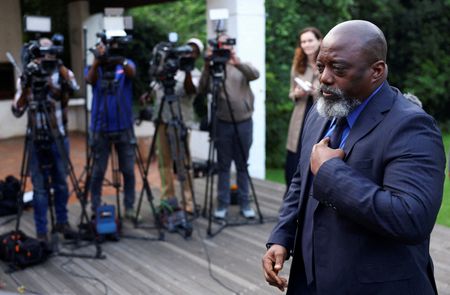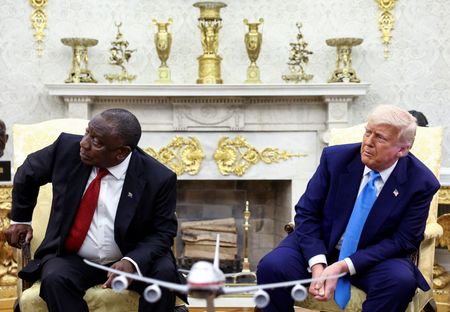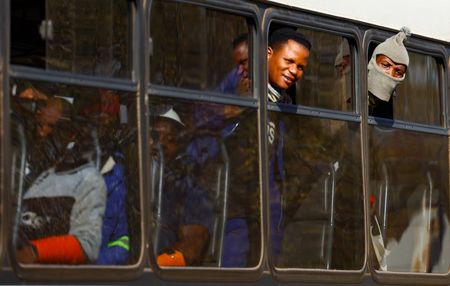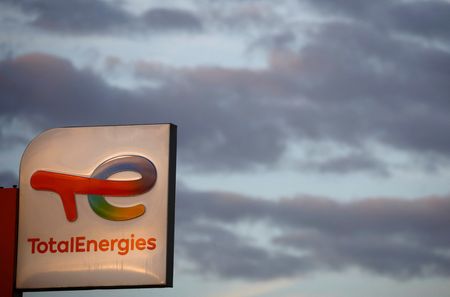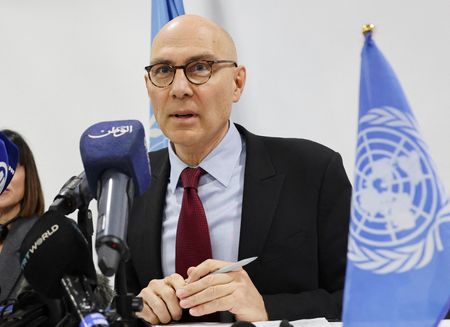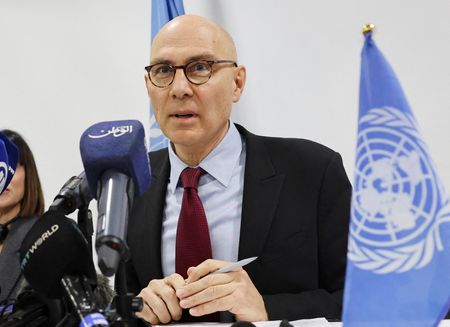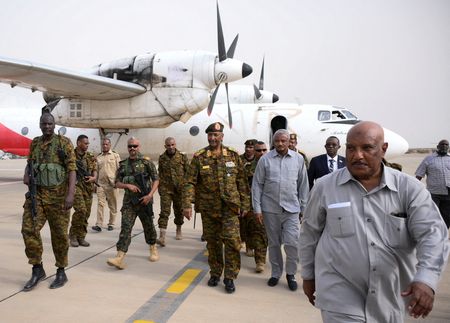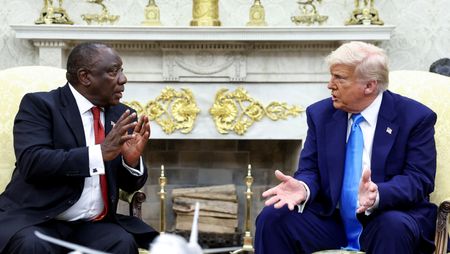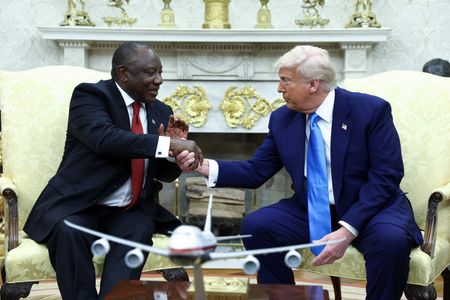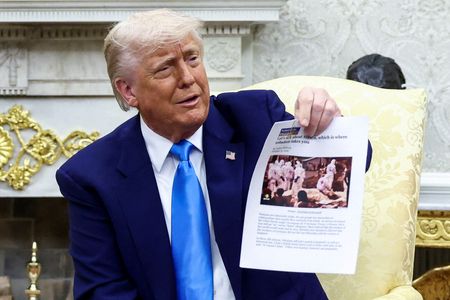By Ange Kasongo
KINSHASA (Reuters) -Congo’s former President Joseph Kabila on Friday lambasted the Central African country’s justice system, a day after the senate voted overwhelmingly in favour of lifting his immunity from prosecution over his alleged links to the M23 rebel group.
Kabila is wanted in Congo for alleged crimes against humanity for supporting the insurgency in the east, including a role in the massacre of civilians. Congo has also moved to suspend his political party and seize the assets of its leaders.
“As for the justice system … it has completely abdicated its responsibilities, allowing itself to be openly exploited for political ends,” Kabila, who denies any ties to the rebel group, said in a speech on Friday evening.
“It is therefore nothing more than an instrument of oppression for a dictatorship desperately trying to survive,” he said.
He also called for the immediate withdrawal of all foreign troops from the national territory.
Kabila stepped down after almost 20 years in power in 2018, yielding to protests. He has been out of the country since late 2023, mostly in South Africa.
The senate backed lifting his immunity by 88 votes to 5 in a secret ballot.
Kabila has for weeks said he will return to Congo to help find a solution to the crisis in the east, where Rwandan-backed M23 rebels now control large swathes of territory.
Speaking on Friday from an undisclosed location – for security reasons, according to his team – Kabila said Congo’s sovereignty and territorial integrity were non-negotiable.
“As a soldier, I swore to defend my country to the supreme sacrifice … I remain more faithful than ever to this oath,” he said.
A return to Congo by Kabila could complicate the bid to end the rebellion in eastern Congo, which contains vast supplies of critical minerals that U.S. President Donald Trump’s administration is keen to access.
Washington is pushing for a peace agreement to be signed this summer, accompanied by minerals deals aimed at bringing billions of dollars of Western investment to the region, Massad Boulos, Trump’s senior adviser for Africa, told Reuters earlier this month.
Kabila came to power in 2001 after his father’s assassination. He refused to stand down when his final term officially ended in 2016, leading to deadly protests, before he agreed to leave office following an election in 2018.
(Reporting by Ange Kasongo; Writing by Jessica Donati and Portia Crowe; Editing by Alex Richardson and Daniel Wallis)

